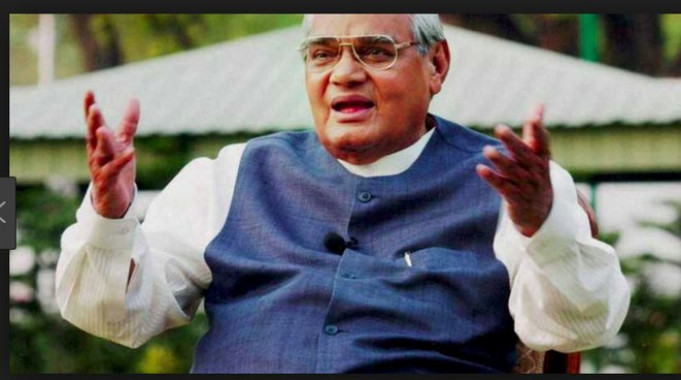The Prime Minister throws a tea party
Reprinted from The Hoot Reader, OUP, 2013
Journalists are suckers for being softened up, and the Indian prime minister hit upon an idea this International Women’s Day which turned out to be an unqualified public relations triumph. He decided to invite women journalists to tea, as many as could be traced, young, old, junior, senior, and middling. Never mind that the invitations were still arriving on the day of the party, a large, excited gaggle of reporters, sub-editors, columnists, and editors duly showed up. Some dressed up; others came in shirts and trousers or plain Jane kurtas. All had a ball.
Perhaps nobody had reckoned on how much of a jamboree it would become—the Prime Minister’s Office (PMO) had ended up with a list of 700 invitees. It turned out to be a rather jolly garden party. The flowers were gorgeous in Delhi’s sunny March weather, the PM was amiable, and cabinet minister, Sushma Swaraj, always vocal, chirruped away every time she was asked a question. Why was she doing the answering, somebody ventured to ask. ‘Because I am the official spokesperson,’ she said.
The media was duly bowled over. The masterstroke was inviting the junior and deskbound, who would normally never see the inside of the PM’s house. The next morning’s newspapers were full of it: The Pioneerhad a front-page photograph of the women on its staff posing with Mr Atal Bihari Vajpayee. All TV news bulletins and most newspapers had pictures of smiling young women posing around him, and Zee News’s story on the event killed two birds with one stone: it gave the PM’s public relations exercise due mileage; and dwelt conspicuously two or three times on its anchorwoman, Alka Saxena. Just in case you thought she had been left out of the party.
The Hinduthought fit to make the PM’s few remarks on the impending war in Iraq its lead story the next morning. He spoke very briefly from a dais on his lawns and then suggested jocularly that pen and paper be put away because this was not meant to be a press conference.The fleeting speech was evidence that everything had been thought of: women or men, journalists will be newshounds first and will want something more than tea from the PM. So, throw them a couple news points to use the next morning.
When the speech was over, everybody waited to see what he would do. He took off in a certain direction, ambling slowly along, and the women followed, jostling to get closer, and asking questions. Then they closed in and he ground to a halt. His staff decided to move him back to safer territory. So, they settled him on a chair in front of a large vase of pink carnations, with Swaraj by his side, and threw a cordon around. The women took one look at it, and simply up-ended their heels and stepped over.
Women, young and old, went leaping eagerly up to pose for pictures. The veterans hung out on the sidelines and fished for sound bites on the day’s news in general. Since questions were not encouraged, they asked silly ones. How did he feel being surrounded by so many women? Ho, ho, ho, ho he said, almost like Santa Claus. Why did he decide to call all? ‘I didn’t know there were so many,’ he replied with disarming candour.
The only invited males around were the photographers, even the lone woman among them rushed off to pose with the PM. And the one male who was expected to be around was conspicuous by his absence: Minister of State for Information and Broadcasting, Ravi Shankar Prasad. Some invitees drifted away and speculated about the PM. ‘You know, he’s not all there.’ To which a greying veteran, much more into political reporting, said authoritatively that he was most certainly all there. The others bowed to superior wisdom.
One does not know how was much fun it was for Mr Vajpayee, but the invitees warmed to the occasion. Here was this rather splendid Delhi residence, huge lawns decked out in pink satiny pandals, somebody’s idea, doubtless, of appropriate decor for Women’s Day. All around were people who hadn’t seen each other for ages, hailing each other with glad cries, tucking into a vast repast, and gossiping furiously.
A few women had been trying to set up a helpline to come to the rescue of journalists, given the waning commitment to press freedom both at the centre and in the states. They hadn’t met in a while. But looking around at the PM’s do, they discovered that all those in the group were present. So, they sat down right there on the starched white padded chairs, tea in hand, and had an impromptu little meeting on what to do next. Way to go, they told themselves. Bring your subversive little agendas into the PM’s residence, and enjoy the hospitality of Delhi’s best address.
When it grew dark, the stragglers left reluctantly, with the PM still sitting on his chair, in front of the vase of pink carnations. He was too well mannered to leave before his guests.
Sevanti Ninan edits the Hoot
Related link: PM plays perfect host on Women's Day







